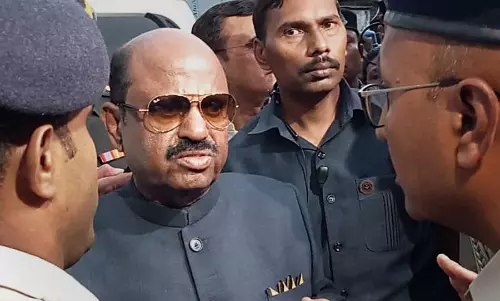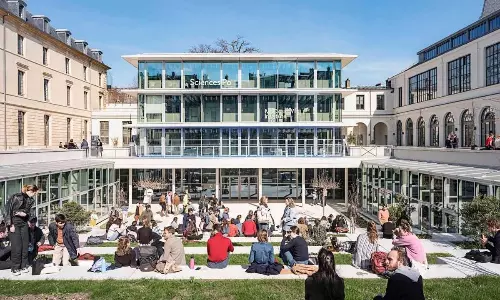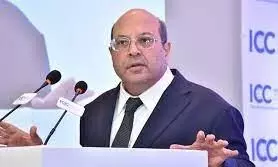
Justice Nariman's thoughts on judiciary
text_fieldsThe remarks made by former Supreme Court Judge Rohinton F. Nariman's during the Smt Bansari Sheth Endowment Lecture should open the eyes of patriots. In his speech, he mentioned four events of this year which he described as portents of danger for democracy. One was how the Supreme Court's order up[holding the central government's decision to strike down sections of Article 370 of Indian constitution granting special status to the state of Jammu and Kashmir, that watered down the principles of federalism. Another was the change in the Election Commission Bill, which replaced the Chief Justice of India with a cabinet minister in the three-member committee that selects the Chief Election Commissioner. The third is the action of the Governor of Kerala who sat on eight bills passed by the Assembly without signing them for 23 months and when the Supreme Court took them up, signed one of them and referred the remaining seven to the President in one go. The fourth is the banning of the BBC documentary on Prime Minister Modi and the raids on the BBC offices following that.
Also read: Former Justice Nariman finds SC judgment on Article 370 disturbing
Among the four above, the retaliatory action taken against the BBC fundamentally affected democracy and freedom of expression. The BBC documentary' India -The Modi Question' was banned because of its political content and opinions. It goes without saying that the existence of differences of opinion is an integral part of democracy. By the time the order came to remove it from social media, a large number of people had seen it through other means. Then there were raids and follow-up actions against the BBC for allegedly violating the Foreign Exchange Management Act. These actions were similar to the steps taken by the government using the Income Tax department, Enforcement Directorate, and CBI to tame political opponents in the country. Nariman expressed the views that when the judiciary notices such actions against freedom of the press, it should immediately step in and stop the executive from vindictive action. The explanation that always comes from the government in such stages is that it is routine administrative action and that because an organisation is a media entity, it cannot violate financial laws of the country. However, he said that the moment they see that there will be control over the media, the courts should show caution to clamp down on them. If the tax raid is in the name of free media activity, then the court should pronounce that the raid is illegal and unconstitutional. The question here is when it transpires that the raids and investigations are conducted only in the premises of political opponents or media critical of the government, the courts will get seized of the matter and act accordingly.
Also read: Justice Rohinton Nariman slams BBC documentary ban and IT raids
To this can be added the remarks made by the Supreme Court Chief Justice DY Chandrachud in the inaugural Justice ES Venkataramaiah Centenary Memorial lecture last Sunday. He said that the courts have recognised that a seemingly neutral law can be oppressive against a particular group and if true equality is to dawn, its consequences should be foreseen in the context of social conditions. The chief justice was underlining the philosophy that judges should be guided by a vision that is above mere letter of the law. The actions of the government should also be guided by the same criteria. The question of common sense as to why all the raids and other actions taken by the ED and Income Tax authorities in the last year are only against the anti-BJP parties and their leaders needs to come to the attention of the courts when related cases come up. Instead of confiscating the basic tools of journalists like mobile phones and laptops for alleged violations of the law, investigations if any can be carried out without the use of force. This can avoid unnecessary arrests and drama and ensure an honest investigation. If courts are careful to ensure impartiality, the government's atrocities can be prevented. Only by adopting such cautious means can the role of the media as guardians of democracy be protected by the judiciary, the third pillar of governance. If Justice Nariman's comments could make judges alive to these aspects, so much better for the country.
Also read: CBI is an independent agency, no control over it: Centre tells SC












